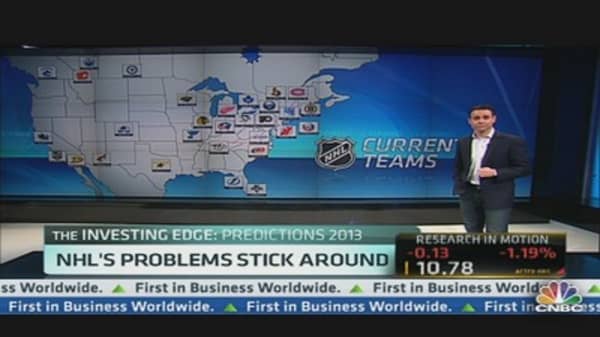We avoided going over the 'Fiscal Cliff." The "Milk Cliff." Even the "Container Cliff."
Now, we are dealing with the "Hockey Cliff."
The NHL, and its $3.3 billion business, has been locked in a labor battle for months — with more than 600 games already canceled.
League commissioner Gary Bettman noted if there's no deal reached with the players' union by January 11, then most likely, the season is completely gone.
That day, folks, is the Hockey Cliff. And although it may seem a ridiculous use of the now-cliche "Cliff", there are serious economic implications for Canada and the United States. (Read More: 'Container Cliff' Avoided Until February)
Several teams have already laid off employees, while others have either furloughed workers or reduced hours. If the entire season is wiped out, which includes the highly lucrative Stanley Cup Playoffs, the cuts will be widespread and, perhaps, permanent.
On an even wider level, all of the businesses surrounding the hockey eco-system have suffered even more.
Joe Kasel owns the Eagle Street Grille in St. Paul, Minnesota. He's been in business for a decade, and his restaurant sits less than 50 yards from where the NHL's Minnesota Wild play to packed houses all winter long — except for this winter.
"Fifty percent of my revenue is from hockey," Kasel told CNBC.
"This [January 11] deadline means either get it done or don't," said Kasel, who is frustrated by all the waiting because opportunities to possibly find other events have come and gone. "If not, let's get something in here to generate revenue."




